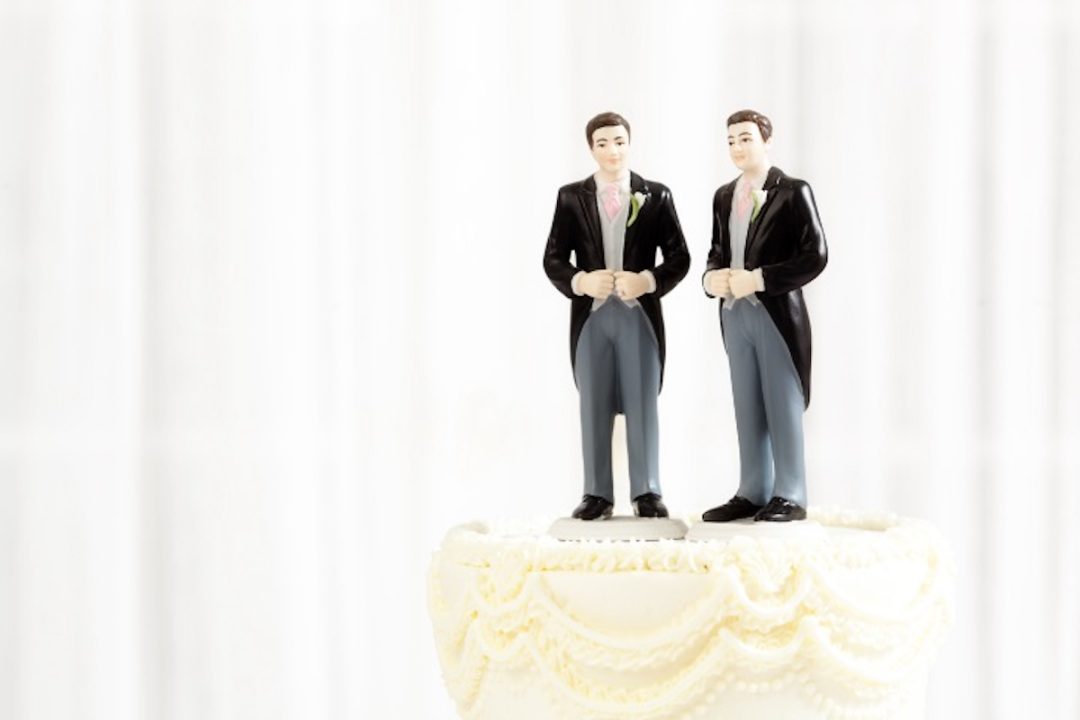
Though an ardent leftist, late Supreme Court Justice Ruth Bader Ginsburg once conceded that Roe v. Wade was a badly settled decision. Then the abortion ruling finally was “unsettled” and “resettled” in 2022 with the Dobbs decision. Will the same process unfold with the Obergefell v. Hodges same-sex “marriage” opinion (2015) — only, with greater speed?
Pro-family group MassResistance (MR) apparently thinks so. The organization is optimistic because a same-sex “marriage” resolution it’s pushing has now been advanced in two state legislatures. The resolution — recognizing that, as with abortion, marriage is a state issue — requests that the Supreme Court overturn Obergefell.
MR certainly has support in this regard. For example, Justice Clarence Thomas has said that the 2015 opinion should be revisited. Chief Justice John Roberts also disagreed with the opinion — vehemently. It was so bad, he said in his dissent against Obergefell, that the Constitution actually “had nothing to do with it.” Late Justice Antonin Scalia concurred. He said the decision was egregious enough to move the Court “one step closer to being reminded of [its] impotence.”
Will the Court Remarry Constitutionalism?
As for the current faux (same-sex) marriage developments, MR wrote Wednesday that
North Dakota has become the second state to move our MassResistance “gay marriage” resolution forward in its legislature. Two weeks ago, the Idaho House of Representatives passed it overwhelmingly.
The North Dakota resolution is sponsored by 7 state representatives and 4 state senators. On Monday, February 17 the North Dakota House Judiciary Committee held a public hearing then overwhelmingly voted in favor by 11-1.
… MassResistance is pushing for state legislatures across the country to pass our resolutions urging the US Supreme Court to overturn its 2015 Obergefell “gay marriage” ruling. The ruling was a move by the activist SCOTUS Justices at the time to take away the rights of the states on this contentious issue.
The 5-4 Obergefell ruling stated that the 14th Amendment required that same-sex “marriage” be allowed by the states.
(Note: In reality, courts can’t “require” the other two governmental branches, whether federal or state, to do any such thing. As I wrote recently, judicial supremacy is a myth, and courts have no enforcement power.)
In truth, Obergefell should be revisited. And this isn’t just because, as Scalia also put it, it was not at all based “on law.” It also has no basis in reason.
A Matter of Rights — or Wrongs?
Now many, including the SCOTUS Obergefell majority, say the marriage issue is a matter of equal rights. Let’s consider this argument.
What if someone told you that homosexuals already have the right to marry — meaning, they have a right enter into a conjugal union with a member of the opposite sex — as that’s what marriage is? Of course, faux-marriage advocates will protest and dispute this definition. This brings us to the universally ignored crux of the matter:
The marriage debate is not about rights.
It is about definitions.
After all, how can you decide if there’s a right to a thing without first determining what that thing is?
Are the courts supposed to say “There is a right to we know not what”?
The marriage debate cannot be about rights. For no one — anywhere — disputes that all adult Americans have a right to “marry.” Some disagree, apparently, on what “marriage” is.
Yet if the courts aren’t going to use the definition operative in Western civilization (and beyond) for millennia, what are they supposed to do? Are a handful of judges qualified to redefine marriage?
Lib-Con Tag Team
Ironically, too, neither liberals nor conservatives help in this regard. Liberals might reject the time-tested marriage definition. But they never take pains to put forth their own hard, fast, unabashedly and consistently stated definition. One reason for this is interesting. Since definitions limit and exclude, to do so would render them guilty of precisely what they accuse traditionalists of: being exclusionary and discriminatory. They would lose their illusory high ground and a handy cudgel with which they hammer their opponents. So they want to have it both ways.
They want to claim, at least tacitly, that the right marriage definition is wrong. Yet they then also refuse to tell anyone what definition is right.
But if they don’t know what definition is right, how can they be so sure the traditional one is wrong?
And how are conservatives culpable? Not only do they consistently fail to make the above points, but they actually accuse the Left of “redefining” marriage. This gives leftists far too much credit because, again, they’ve made no real attempt at redefining marriage.
They are in the process of “undefining” it.
They do this by saying, essentially, that “marriage equality” means being allowed your own conception of marriage. Yet there can be as many conceptions as there are imaginations. And contrary to past claims, this does, in fact, undermine marriage. For if something can mean anything, it means nothing.
Mr. Marriage Has “Equal Rights”? What Are His Pronouns?
Some may now say there’s no need to redefine “traditional marriage” because faux marriage is an institution unto itself. But this does nothing to validate the constitutional equality argument. After all, the 14th Amendment — the basis for the Obergefell opinion — guarantees equality under the law to individuals.
Not institutions.
Were it otherwise, any institution a group could conjure up — including interspecies “marriage” — would have to enjoy governmental recognition.
So judges’ position should be simple: “The marriage issue concerns definitions, not rights. And no constitution empowers us to redefine marriage. Go talk to your state legislators.”
Yet that talk will now be problematic. Chances are decent that Obergefell will be overturned in the not-too-distant future. But overturning decades of sexual devolutionary conditioning is a different matter. As to this, national support for faux marriage was a mere 11 percent in 1988. Yet by 2004 it had more than doubled, rising to 25 percent. And today more than two-thirds of Americans support the pseudo-institution. Why, it enjoys majority support even in North Dakota and Idaho.
In other words, this is probably not the political hill to die on right now, with the current focus on draining the D.C. swamp. It does illustrate, however, how dark America’s moral swamp is and how, sadly, it extends far beyond the Beltway.




